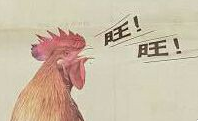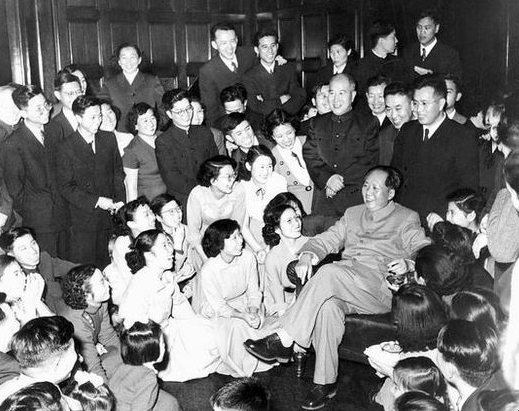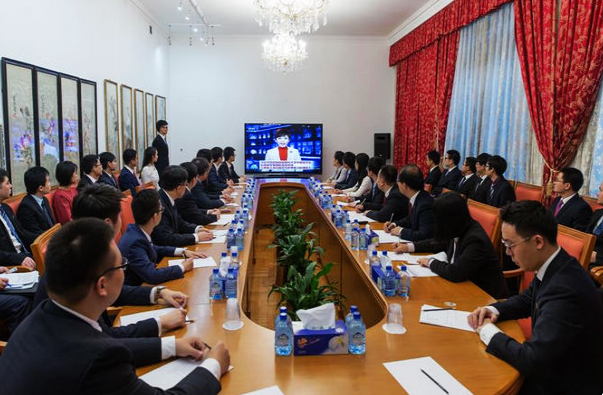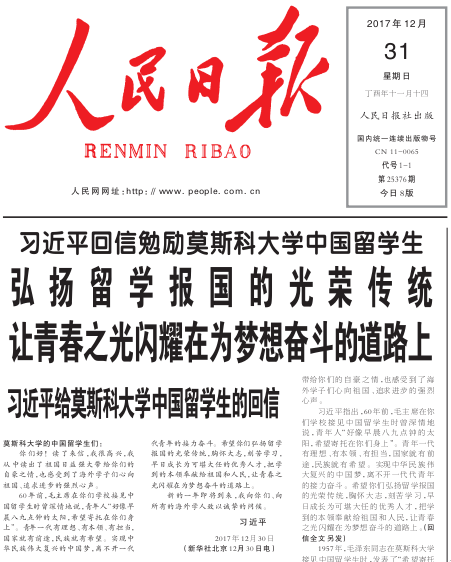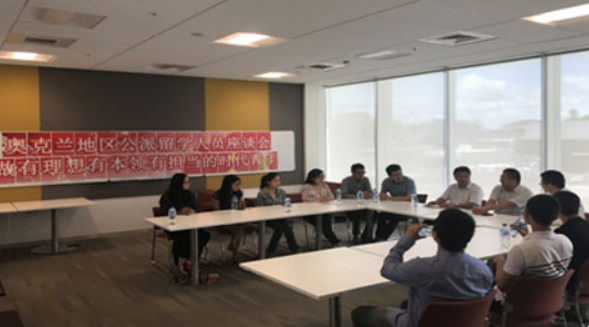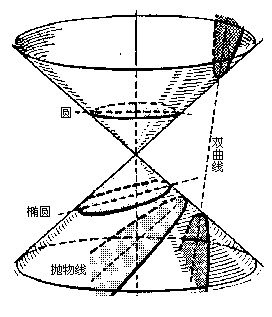This is the final post of a triple on CCP influence in Australia and New Zealand. The first two pieces introduce former PRC diplomat Chen Yonglin’s 2016 China in Perspective piece on Australia as “China’s backyard”, presented for the first time in English.
0. Leading from the back end
1. The cis-Tasman yard
2. Chen Yonglin: Australia as China’s backyard
Chen Yonglin 陈用林 is a former consular official who defected to Australia in 2005 and aired a series of claims about persecution of dissidents and spying on Australian soil. A parliamentary inquiry ensued; the documents show how perfunctorily he was treated, initially being denied political asylum, then refused police protection and even advised by immigration officials to go back to his consulate.
In 2016, Chen wrote a piece for China in perspective (纵览中国), an online publication under the Princeton China Initiative. The article, titled “Australia is in the process of becoming China’s backyard” (澳大利亚正在沦为中国的后院), discusses more recent developments, such as the lease of the Darwin port. Although it might not be possible to verify some of his claims based on open sources, Chen’s insights as a former diplomat make his thoughts worth reading, as they are relevant to the ongoing debate on the extent of CCP influence in Australia.
The original piece in Chinese is available on the website of China in perspective. I particularly liked the epithet 舔屎族 (coprolictae).
An English translation is given below, revised by the author. I’m grateful to the author and translator for their permission to reproduce the article. Needless to say, it reflects the author’s views, rather than mine.
Australia is in the Process of Becoming China’s Backyard
Chen Yonglin
The original Chinese-language version of this article appeared under the title “陈用林:澳大利亚正在沦为中国的后院” in China in Perspective 纵览中国, dated 31 August 2016.
Not long ago I was chatting with some friends about how the Chinese New Year Parade organised by the City of Sydney in 2015 was the 12th such annual parade, and how with Chinese government support in terms of people and funding, the event has become larger and more lively every year. It was also noted that at that time the PRC Consulate General in Sydney had arranged for some ethnic Chinese who were close to the Communist Party of China (CPC) to sign a petition rejecting the City of Sydney’s proposal to localize the procession, under the name of the “Lunar New Year Procession”. In fact the CPC’s all-out infiltration of Australia started in that year of 2004. Over these 12 years we have seen a process by which Australia has gradually and increasingly been turned into China’s backyard.
When Fu Ying was the PRC ambassador to Australia, she repeatedly said to Australian government officials and media that China wants Australia to become a stable and reliable resources and energy supplier. Australia’s only concern at that time was that China would stop buying Australia’s resources.
In mainstream Australian society, the Northern Territory Government has recently been counting its money. The money comes from leasing the operating rights over the port of Darwin to a Chinese company for 99 years! The port of Darwin is the most important Australian military base for countering attacks from the north. Did the Northern Territory Government have the right to represent Australia in submissively giving the port to China? The Northern Territory Government received a little money but the national security interests of Australia were seriously harmed. Most Westerners, and particularly Australians, do not understand the significance of the 99 years. However, the ethnic Chinese close to the CPC and the United Front people will certainly feel a sense of revenge as we clearly remember that 99 years was the length of lease over Hong Kong’s Kowloon and New Territories which Britain demanded from China though it could be normal practice in leasing land in the West.
The media has also recently revealed a list of 30 Chinese persons who have made political donations in Australia. The most prominent are Chau Chak Wing of the Kingold group (the proprietor of the pro-CPC newspaper Australian New Express Daily) and Huang Xiangmo of the Yuhu Group (the Chairman of the Australian Council for the Promotion of the Peaceful Reunification of China). Many of these donors are members of the Australian Council for the Promotion of the Peaceful Reunification of China. Studies show that formerly some prominent political figures such as the former NSW premier Bob Carr were looked upon very kindly by the CPC, and seen as “tomorrow’s star”. He then became Foreign Minister in the Gillard Government and today he is pretty well-off. There is also the former NSW Treasurer Eric Roozendaal who has become the deputy chairman of the Yuhu Group responsible for strategic planning. With the support of funding from the Chinese government, Chinese companies are buying huge swathes of Australian farms and large numbers of livestock. Australians are also aghast wondering how it is that Chinese persons have purchased all the property along George Street in Sydney.
Today, Australia not only provides China with cheap resources and energy but also with the raw material for manufacturing nuclear weapons, uranium. According to high-level sources, on several occasions, Australian uranium nominally exported to India actually went to China. The Australian government, even after investigating the facts, did not take any measures to restrict this commercial activity which threatened the country’s security. I consider that China has already used Australian uranium to manufacture nuclear weapons.
Three feet of ice does not form in a day
In the middle of August 2004, the 10th meeting of China’s envoys based abroad was held in Beijing. In his speech, the CPC party secretary Hu Jintao put forward the instruction that Australia should be included in the category of China’s “overall periphery”. In February 2005, in order to implement the spirit of the envoys’ meeting, Zhou Wenzhong 周文重, a vice minister in the Ministry of Foreign Affairs convened a meeting in Canberra of senior officials at the PRC embassies in Australia and New Zealand and high level foreign ministry staff. I participated together with Consul-General Qiu Shaofang 邱少芳. The contents of the meeting I have already detailed in an interview by the RFA in June 2005, under the title ‘RFA Interviews Chen Yonglin (Part 2): The US-Australia Alliance is Loosening”. Unfortunately, apart from a small number of Western scholars, few people have paid this much attention. Essentially, in accordance with their fixed strategic plans, the Communist Party of China had begun a structured effort to infiltrate Australia in a systematic way.
In looking at Australia, the Chinese government saw only one thing: Australia is rich in high-grade mineral and energy resources. It will serve as an inexhaustible supply base for China over the next 20 years of development, and it will provide an overall logistical safeguard for China’s economic development.
Australia was also the earliest experimental base for the Chinese Communists in expanding their soft power abroad because Australia has advantages in four respects: 1. Geopolitical advantage. It is the nearest major Western democratic polity to China with a stable political environment, relatively weak national power and is the weak link in the western camp. 2. Advantage in terms of Chinese migrants from the PRC. After 1989, over 40,000 Chinese students in Australia obtained residence rights. Adding their immediate relatives, more than 100,000 Chinese persons became Australians. Naturally these people have intimate and diverse links with the PRC, have often been ideologically trained, and a majority have a strong sense of Chinese chauvinism. It is thus that, through their fear of Chinese political power and gangsters, they can be easily coerced. 3. The advantage of multicultural policies. Australia’s Racial Discrimination Act allows minorities to assert a certain confidence. Under the pompous claim of promoting Chinese national culture, they often engage in ideological propaganda. 4. There is no Foreign Agents Registration Act. The US Foreign Agents Registration Act is a trump card in opposing infiltration by foreigners. Australia has no such tool.
China’s political infiltration of Australia involves three spheres: 1. Chinese community organisations; 2. Student and scholar associations; and 3. The Confucius Institute system.
Working with Chinese community organisations is the most important task. The CPC uses Chinese community organisations which are pro-Communist as their base, and from there they radiate into society. “Blood is thicker than water” and ethnic affiliation can be used to influence people. As long as people have Chinese faces, the CPC feels that they have an opportunity to influence and utilise them. Today in Australia, regardless of whether we speak of the Chinese community, political circles, commercial groups, scholarly bodies, literary and arts organisations, news organisations, or even public schools, there will be Chinese agents 代理人 within. The CPC agents are everywhere, with their fear-inducing actions, their lies, their corruption and their cold-blooded ways. Australia’s key values have already begun to be attacked and corroded. For example, in June 2015, the Western Australian Senator Dio Wang, when being interviewed by the Australian Financial Review, spoke in defence of the CPC over the massacre in Tiananmen in 1989.
The key pro-Communist Chinese organisation in Australia is the Australian Council for the Promotion of the Peaceful Reunification of China (ACPPRC), which has a pyramid structure with control at every level. The ACPPRC is under the leadership of the China Council for the Promotion of Peaceful National Reunification, which in turn is an official organ under the leadership of the CPC Central Committee’s United Front Work Department. The chairman of the China Council is Yu Zhengsheng 俞正声 who is both a member of the CPC Politburo Standing Committee and chairman of the Chinese People’s Political Consultative Conference. Key members of the Australian Council for the Promotion of the Peaceful Reunification of China have been directly appointed as “Non-Voting Members of the Chinese People’s Political Consultative Conference”. For example William Chiu 邱维廉, a former chairman of ACPPRC, was appointed as a Non-Voting Member of the Chinese People’s Political Consultative Conference, but has since been replaced by the ACPPRC executive vice president Victor Tian 田飞. The Australian Council of Chinese Organizations 华人团体协会 was originally set up to strengthen control over the Australian Chinese community, aid infiltration of mainstream society and to oppose the overall sanctions imposed by western countries as a result of the June 4 massacre. However, with the grand creation of the ACPPRC, the Australian Council of Chinese Organizations was hollowed out, and its president Dr Tony C. M. Goh 吴昌茂 had to make great efforts to revive his reputation.
The Chinese Students and Scholars Association (CSSA) is an organisation which is directly controlled by the CPC through the embassy in Canberra. In order to make control easier, in addition to establishing CSSA bodies in each university, a national Australian Chinese Students and Scholars Association has been created, below which are the NSW CSSA, the Australian Capital CSSA and so on, in a pyramid hierarchy. All are directed by the Education Office of the Chinese Embassy in Canberra and the Education Section of the PRC Consulate General in Sydney, and the appointment and election of CSSA leaders is all carried out under the management of the embassy or Consulate General. On the NSW CSSA website, one can read of the nature of the organisation: “The NSW CSSA was initiated by Consul Bai Gang of the Education Section of the PRC Consulate General in Sydney…”
In 2008, Bai Gang 白刚 the Education Consul of the PRC Consulate General in Sydney also established the Australian Chinese Professionals Association 澳大利亚华人专业人士协会. This association was specifically established for the Chinese students who stayed in Australia after graduation, so as to allow them to continue to ‘make a contribution to the motherland.”
Originally, the Confucius Institute system was established to compete with the Taiwan Chinese-language education materials presented in full-form traditional characters. However, subsequently it was used to recruit agents and establish a pro-Communist network, and it became a major tool for infiltrating mainstream society. Unfortunately, the Australian governments at both the Federal and state levels saw Chinese assistance in providing Chinese language training assistance as a “free lunch” without any conditions. In particular, as the Confucius Classrooms have been widely expanded, the CPC ideological element of education has been further introduced. For China, this means “achieving major aims with a small amount of funds.” This small amount of financial support will result in Australia losing its next generations. The short-sightedness of Australian politicians forms a sharp contrast with the long-term strategies of the Communist Party of China.
There is another secret aspect of the CPC’s overseas deployments. I can’t count the number of people who have expressed scepticism about my claim in 2005 that the CPC has over 1,000 agents and informers in Australia. The Chinese ambassador to Australia at that time Fu Ying said to journalists that: “If I was overseeing the work of so many spies, would I have time to meet with you all here?” Those who believed this remark have no idea of how professional secret agents work. What answer would we get if we asked the US ambassador in Beijing: “Are you the person who oversees the CIA and FBI agents?” In Australia, the CPC has three avenues of intelligence gathering: the PLA’s General Staff Headquarters, the Ministry of State Security and the Ministry of Public Security. With the embassy itself added to this, there are actually four avenues. Each avenue operates independently and in principle does not overlap with the others. If there is some overlap in respect of some politically sensitive issue, the matter is worked out through inter-departmental coordination among the Ministry of State Security, the Ministry of Public Security and the embassy. The PLA’s General Staff Headquarters generally does not intervene in political matters except on the top national strategy. However, in counter-terrorist activities, there is some cross-over involvement, because this is a cash cow for obtaining rewards for achievements. Because they are corrupt or limited in terms of the funds allocated to them, the CPC agents often have close contacts with major corrupt figures or wealthy businessmen who have migrated to Australia. However, the Australian intelligence agencies generally just observe these links and allow these contacts to occur. The Chinese agents in Australia thus do not really know whether they are already under surveillance. Because of the development of voice sampling technology, Chinese agents can be monitored and recorded no matter what form of telephone line they are using. Further the former ploy of using telephone switching to avoid GPS location identification no long works. I am quite familiar with this aspect of the embassy and consulates. The embassy has a military officer who was sent by the PLA’s General Staff Headquarters. Everyone knows this. However many people do not know that there is another person sent by the General Staff Headquarters and based in Sydney. This officer operates independently and his expenses are provided in US dollars, sent by diplomatic bag. Since I left the diplomatic service, every major consulate has increased its staffing of Ministry of State Security personnel. For example, Sydney now has a second Deputy Consul General whose main function is to supervise the staff at the Consulate General, prevent defections and deal with orders from the Ministry of State Security. These Ministry of State Security and General Staff Headquarters personnel are sent to work in the embassy and consulates under the alias of local foreign affairs office staff or major state-owned enterprise staff. The work of Ministry of Public Security staff abroad mainly involves capturing fugitives and counter money-laundering tasks. But if you do not have any money, these officers will unlikely be going out of their way to abduct you. As part of the China-Australia Free Trade Agreement exchanges, the Australian government is now promoting the passage of a “Treaty on Extradition between Australia and the People’s Republic of China”. It is possible that in future, this Treaty will be abused and employed to extradite political exiles. As soon as this treaty is passed, people such as the former Yunnan Provincial Party Committee Secretary Gao Yan 高严 will have to start shuddering. Most of the things mentioned above are fairly common knowledge. Working on a figure of 100-plus persons involved in each security branch, that means that there are 300-500 professional secret agents in Australia. If we add the 500-700 external “informers” in Chinese community organisations, student groups, Guangming ribao, Xinhua, China Association for Science and Technology affiliates and so on, a figure of over 1,000 persons involved in intelligence activities is very likely. Through over 10 years of operation, this contingent has expanded greatly. The majority of Australian intelligence agency funding is likely still directed at counter-terrorism activities, but I believe that the funding which is assigned to those beginners engaged in Chinese matters is far below that needed to counter the secret infiltration being carried out by China.
For a long time, the vast majority of Overseas Chinese have pursued a social philosophy where they seek individual security at the expense of principle, and they have allowed themselves to be “represented” by a few low-life Chinese persons who prostrate themselves before the CPC. Over the last 10-plus years, more and more Chinese Communist propaganda has been visited upon the great land of Australia, hijacking the local Chinese. Actually, those who ingratiate themselves with and fawn on the CPC are becoming much more widespread right across the globe. It is just that they are most numerous in Australia.
There is a song0 which goes: “If you close your eyes, nothing will you see. If you cover your ears, not a thing will you hear. But if truth be in your heart and hurt be in your chest, how long can you bear it and how long can you remain silent?”
In recent times, the ‘Australian Values Alliance’ has come to wide public attention because of its efforts to prevent a concert lauding Mao Zedong. This induced great anger among many young Chinese Australians! Further, on the second day after the Australian Bureau of Statistics website suffered hacking attacks from abroad, the Australian Treasurer Scott Morrison declared that, based on national security considerations, he was blocking the sale of Ausgrid to a Chinese and a Hong Kong company. Does this mean that the Australian government has now recognised that maintaining the integrity of Australian values is key to ensuring the country’s overall, long-term national security?
* *
Translated by: Chun Gwai-lo
NOTE
0“The wound of history” (历史的伤口), recorded by various Taiwanese artists in 1989 to support the Tian’anmen demonstrators.



